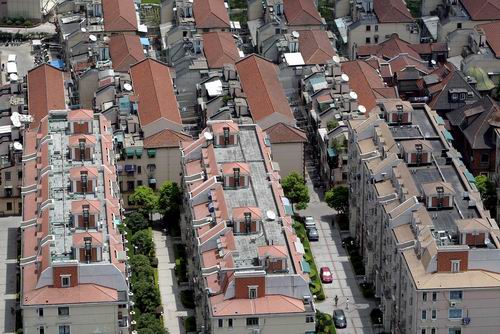
Shanghai Daily News
The city government is looking into a plan to install solar panels on the
roofs of 100,000 buildings around the city to relieve power shortages and reduce
pollution from coal.
A feasibility study on the project is still under way, but close to
completion, according to a professor from Shanghai Jiao Tong University. The
school's solar energy institute is conducting the study.
The solar panels will generate electricity from sunlight, and can be
connected to the local power grid to sell excess supply, said Wang Kangyue, the
institute's deputy director.
The project is called "100,000 sunlight roofs," but Wang said panels could
eventually be set up on far more than 100,000 buildings across the city.
"It could be more than 100,000 units, as there are lots of roofs suitable for
installing the device," said professor Wang.
Shanghai receives 1,100 to 1,300 hours of sunshine a year on average, and
there are 200 million square meters of roofs across the city at present, Wang
noted.
Each solar battery can generate 3 to 5 kilowatts of power, so if 100,000
units are installed they can produce more than 300,000 kilowatts, saving about 1
million tons of coal a year, Wang said.
Officials with the Shanghai Economic Commission, which is sponsoring the
study, said they are already testing solar panels on several buildings.
They have installed a solar-powered water heater in one nursing home, and
solar panels are being built on all of the buildings belonging to the
under-construction New Jiangwan City in Yangpu District, said Chen Hailin, a
commission official.
Commission officials said there are still some "disputes" about the project,
but refused to clarify what concerns have been raised.
One problem could be the high cost of generating solar power, which will add
extra costs to grid operators.
According to professor Wang, electricity produced by solar batteries costs
about 3 yuan (36 US cents) per kilowatt-hour, much higher than that from coal,
the most common fuel for power plants in the city, which costs 0.4 yuan a kwh or
less.
"But that cost excludes the expense from pollution caused by coal or other
fossil fuels," said Wang.



